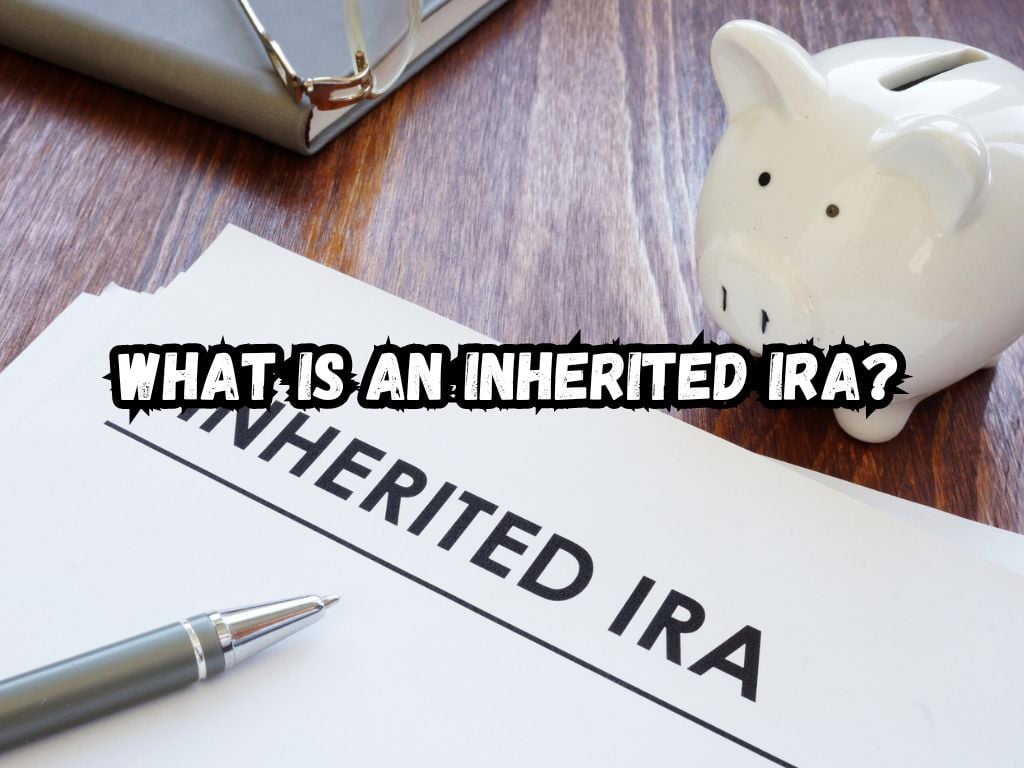Inheriting assets is a significant part of one’s financial journey, and when it comes to inheriting an IRA, it often comes with its own set of rules and considerations.
Understanding what is an inherited IRA and how it works can save beneficiaries from making costly errors and help in planning for their financial future.
What is an Inherited IRA?
An inherited IRA, also known as a beneficiary IRA, is a retirement account that is opened in the name of an individual who has inherited retirement plan assets after the death of the original owner.
Unlike a typical Individual Retirement Account, an inherited IRA allows the beneficiary to continue the tax-deferred growth of the inherited funds.
Eligibility and Rules
Eligibility for inheriting an IRA isn’t confined to spouses. Children, grandchildren, other relatives, and even non-individual entities like trusts and charities can also be named as beneficiaries.
The rules that apply can differ markedly depending on whether the beneficiary is a spouse, a non-spouse, or an entity such as an estate or trust.

Spousal Beneficiaries
When considering Individual IRA inheritance, spousal beneficiaries have unique options that significantly impact Required Minimum Distributions (RMDs) and tax implications.
Predominantly, they have the privilege of treating the IRA as their own. Spouses can roll over the deceased’s IRA into their IRA account, thus renaming the inherited IRA in their name.
An advantage is that this allows them to delay taking RMDs until they reach age 72 if they’re not already that old.
Furthermore, having an IRA in their name enables them to calculate RMDs based on their life expectancy. As a result, the RMDs could be smaller, reducing the tax due and allowing a more significant amount of money to continue growing tax-deferred.
However, it’s essential to consider that the distribution would be taxed as ordinary income in the year it’s taken.
Spousal beneficiaries younger than 59½ who are considering to withdraw from the inherited IRA may face a 10% early withdrawal penalty unless they opt to treat the IRA as their own, thus deflecting the penalty by taking advantage of the spousal exception ruling.
Minor Children as Beneficiaries
Conversely, minor children designated as IRA beneficiaries face different rules. Most notably, they are subject to the “10-Year Rule” introduced by the SECURE Act of 2019.
This rule requires beneficiaries to completely drain the inherited IRA by the end of 10 years following the year of the IRA owner’s death.
However, the Act allows an exception for minor children of the deceased account owner, but only until they reach the age of majority, at which point the 10-year rule would kick in.
RMDs for minor children beneficiaries are typically calculated based on the child’s life expectancy until they age into majority.
But since the SECURE Act, RMDs for inherited IRAs no longer exist unless the beneficiary is an eligible designated beneficiary (i.e., surviving spouse, minor child, disabled or chronically ill individual, or an individual who’s not more than ten years younger than the deceased).
Nonetheless, it’s important to remember that once minor children reach the age of majority, they would have to withdraw all funds from the inherited IRA within ten years, and these withdrawals would be subject to income tax.
This rule might compel higher tax payments if the inherited IRA is substantial and the child is in their highest-earning years.
In conclusion, spousal and minor children beneficiaries have unique yet distinct provisions regarding the inheritance of IRAs.
The best approach, however, can vary depending on personal circumstances and, therefore, it’s recommended to seek professional advice to navigate the complexities of IRA inheritance.
Options for Inherited IRA Beneficiaries
Beneficiaries typically have several options available to them upon inheriting IRA assets. They may choose to take a lump-sum distribution, which could lead to a significant taxable event.
Alternatively, they can transfer the assets into an inherited IRA account – a move that may help manage tax burdens more effectively.
Beneficiaries must also be aware of the deadlines by which certain decisions must be made, to avoid unwanted penalties.

Understanding Required Minimum Distributions (RMDs)
Required minimum distributions are the minimum amounts that a beneficiary must withdraw from the inherited IRA each year.
The rules around RMDs can be complex and are influenced by factors such as the beneficiary’s relationship to the deceased and the age at which the original IRA owner passed away.
It’s critical for beneficiaries to comprehend these rules to ensure compliance and to plan for their tax situation.
Tax Implications of Inheriting an IRA
The tax treatment of inherited IRAs is an intricate area and hinges on the type of IRA inherited and the beneficiary’s decisions. Traditional IRAs usually come with deferred taxes, which the beneficiary will need to pay upon distribution.
Roth IRAs, on the other hand, have already been taxed, and therefore distributions are often tax-free. Beneficiaries must report distributions when they file taxes and should understand the impacts of their decisions on their tax obligations.
How to Manage an Inherited IRA?
Beneficiaries should approach managing an inherited IRA with a strategy that aligns with their financial goals. This often involves deciding on investments within the account and considering how the inherited IRA fits into their broader financial plan.
Professional advice can be crucial here, as beneficiaries navigate the growth potential and tax implications of their inherited assets.
Frequently Asked Questions
Can I avoid paying taxes on an inherited IRA?
Taxes on an inherited IRA cannot typically be avoided, but with careful planning, the tax impact can be managed.
What happens if I don’t take RMDs from an inherited IRA?
Failing to take RMDs can result in a penalty of up to 50% of the amount that should have been withdrawn.
Can I roll an inherited IRA into my own IRA?
Non-spouse beneficiaries cannot roll an inherited IRA into their own IRA. Spousal beneficiaries do have options to combine the assets with their own retirement accounts, subject to certain rules.
Conclusion
As beneficiaries navigate the complexities of inherited IRAs, it’s essential to remember that they hold more than just financial value – they represent a part of someone’s legacy.
A solid grasp of the rules and implications can ensure that beneficiaries honor the original owner’s wishes while also making prudent decisions for their financial future.


 Tags:
Tags:










